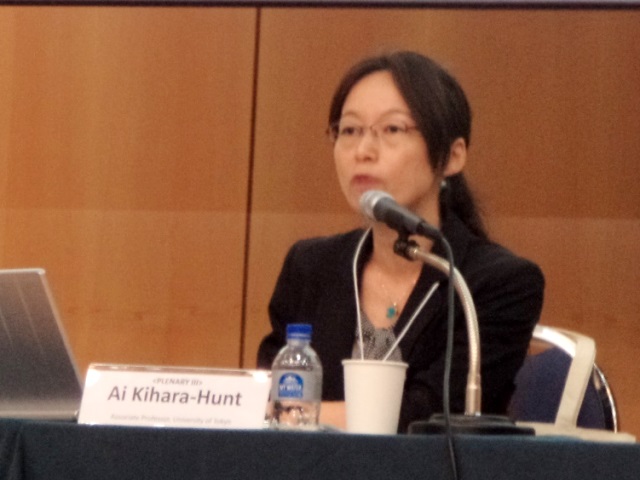Ai Kihara-Hunt, Associate Professor of Tokyo University made a presentation on her findings about individual criminal accountability of UN police personnel, who serve in UN peace operations.

UN police are involved in establishing the rule of law, in UN Peace Operations. However, they themselves commit serious crimes, but are not generally prosecuted. This is likely to have an impact on the UN’s effectiveness and legitimacy. Are the UN’s mechanisms for addressing criminal accountability effective? If there is a problem, how can it be mitigated?
To answer these questions, the qualifications, qualities and functions of UN police were identified. Next, an attempt was made to quantify the problem of their criminal behaviour. Current accountability mechanisms were assessed. Jurisdictional and immunity issues were examined as potential barriers to prosecution. Finally, the obligations of States and the UN to investigate and prosecute criminal acts committed by UN police were examined.
Prof. Kihara-Hunt’s research confirmed that UN police officers commit serious crimes, but mostly while not on duty. Whether officers commit crimes appears to be linked more to their personal integrity than their functions. In the main, they are not being called to account. In addition, the UN is not effective in generating information fit for use in criminal proceedings. However, the laws on jurisdiction and immunity do not constitute legal barriers to accountability, although immunity poses some problems in practice. The principal problem appears to be the lack of political will to bring prosecutions. The finding that States, and arguably the UN, have an obligation to investigate and prosecute crimes may encourage prosecution.




